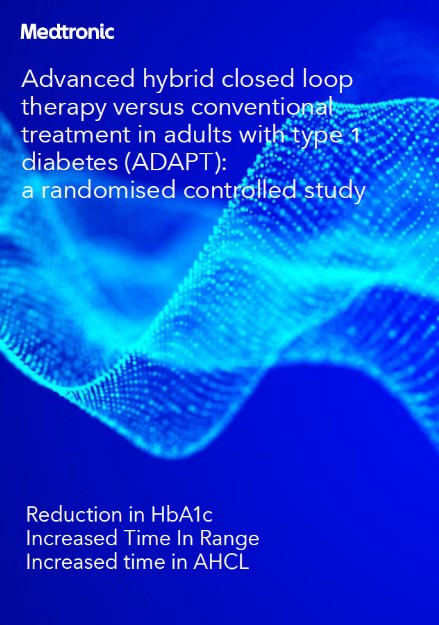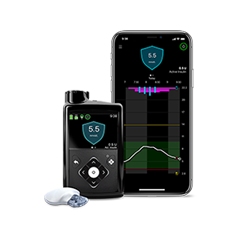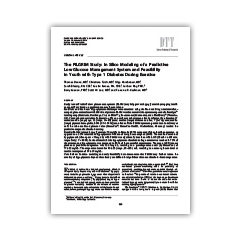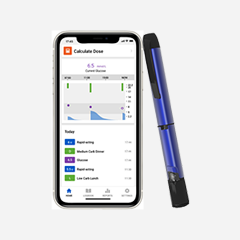
Evidence
Clinical studies library
We have compiled a variety of clinical studies that you can receive upon request. These studies provide key evidence regarding the efficacy of therapies, pumps, CGM and more.
Use the filters to quickly find the information you need.
ADAPT study – 6 month trial results
Adults with type 1 diabetes who are treated with multiple daily injections of insulin plus intermittently scanned continuous glucose monitoring (isCGM) can have suboptimal glucose control.
We aimed to assess the efficacy of an advanced hybrid closed loop (AHCL) system compared with such therapy in this population.
In people with T1D using MDI+isCGM and with HbA1c ≥8·0%, the use of AHCL confers benefits in terms of glycaemic control and user satisfaction beyond those that can be achieved with MDI+isCGM therapy. This data supports wider and earlier access to AHCL in people with T1D not at target glucose levels.
Request a paper
Due to copyright restrictions, you cannot download these papers from the site, however if you 'request a paper' and complete the form, we will source the paper and send it to you.
Clinical study paper requested: ADAPT study – 6 month trial results
You may be interested in

MiniMed™ 780G insulin pump system^
The MiniMed 780G system automated insulin delivery system to help more patients.
View it here

Case studies
We have compiled a variety of clinical studies that you can receive upon request.
View it here

Online learning modules
The MyLearning platform will provide education on Medtronic Diabetes technology.
View it here
*If CGM readings do not match symptoms or expectations, use a blood glucose meter to make diabetes
treatment decisions. Refer to System User Guide.
^Components sold separately.
ALWAYS FOLLOW THE DIRECTIONS FOR USE.
For detailed information regarding indications, contraindications, warnings, precautions, and
potential adverse effects, please consult the information for use at:
www.medtronic-diabetes.com.au Support > Guide &
Manuals
The MiniMed 780™ insulin pump is indicated for use by patients age 7-80 years with Type 1 diabetes, whose total daily dose of insulin is 8 units per day or more. The Guardian™ 4 Sensor is intended for insertion into persons ages 7 years and older. InPen™ is intended for single-patient use by people with diabetes for the self-injection of a desired dose of insulin. A healthcare professional should assist in programming of the device prior to use, based on various patient-specific criteria and targets. For additional product and safety information, please consult the Instructions for Use.
References:
1. Bergenstal RM, et al. JAMA 2016; 316:1407-1408.
2. Stone, 2018. Retrospective Analysis of CareLink (670G).
3. Diabetes Australia Position Statement. Glucose self-monitoring in adults with type 1 diabetes or
type 2 diabetes. 2017. Available from:
https://www.diabetesaustralia.com.au/wp-content/uploads/Glucose-position-statement-2017.pdf
[Accesses April 2023].
4. IQVIA Institute for Human Data Science. Advancing Glycemic management in people with diabetes.
October 2019.
5. Vigersky RA and McMahon C. Diabetes Technol Ther. 2019;21(2):81-85.
6. Battelino T et al. Diab Care. 2019;42(8):1593-1603.
7. Beck R. JAMA. 2017;317(4):371-378.
